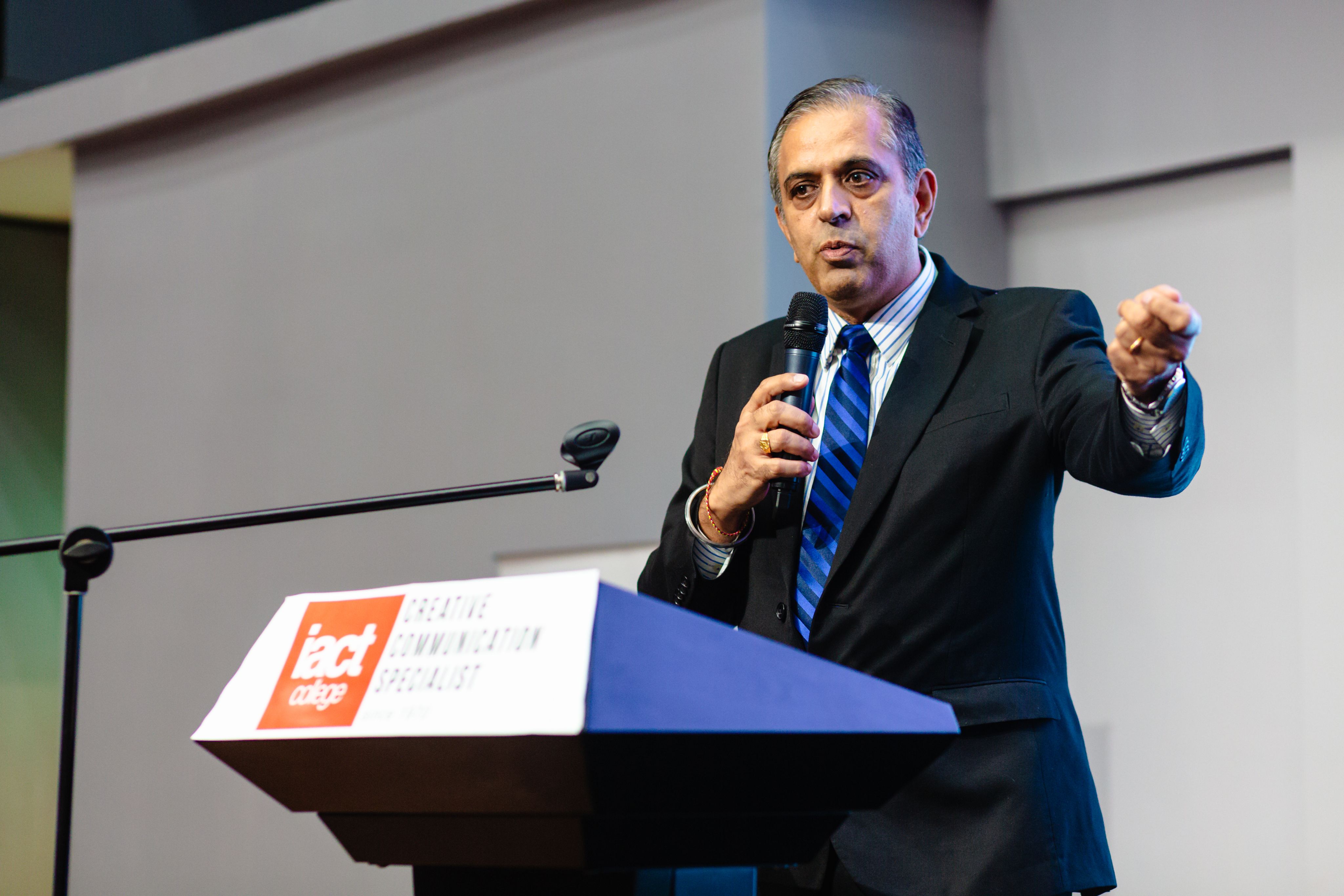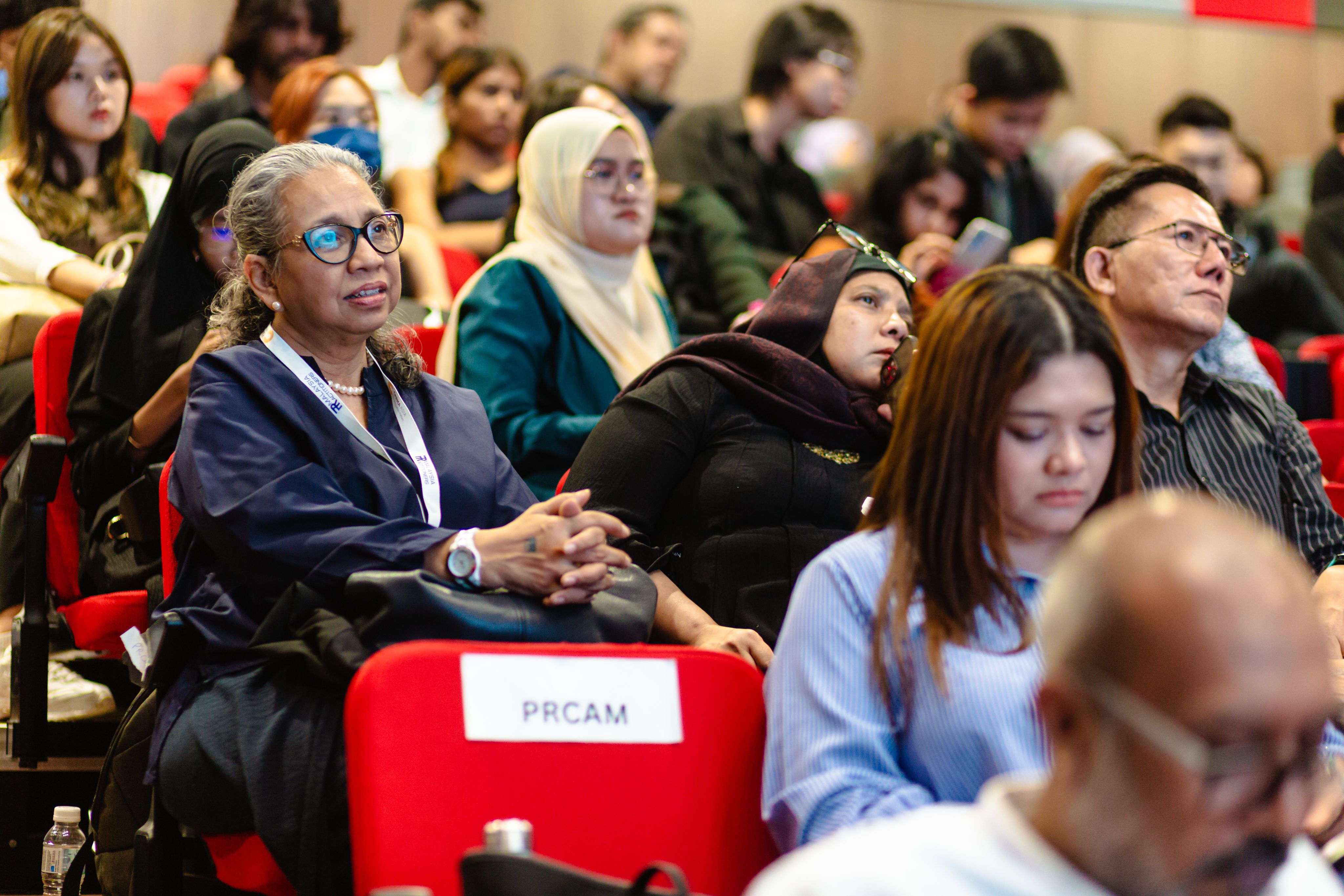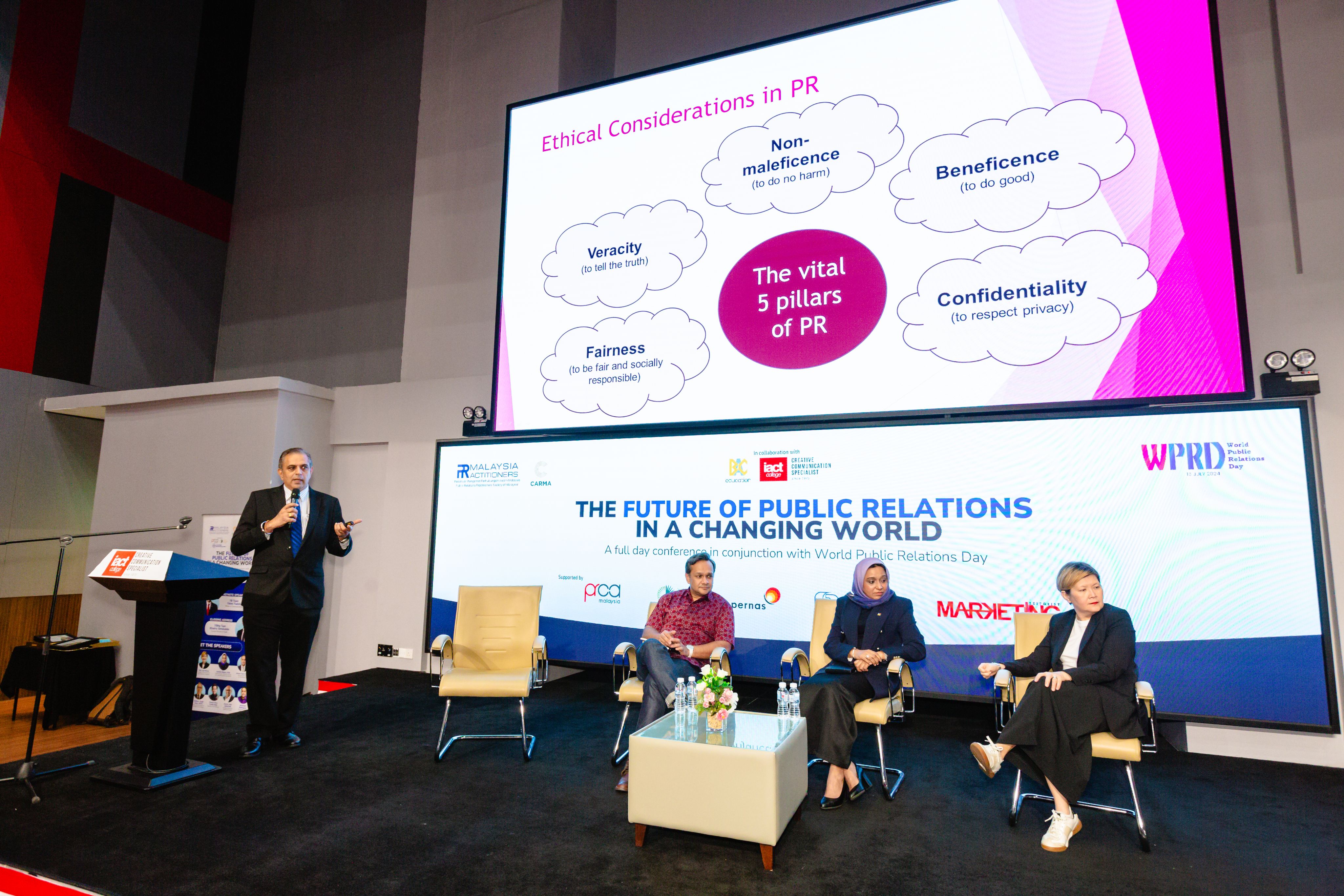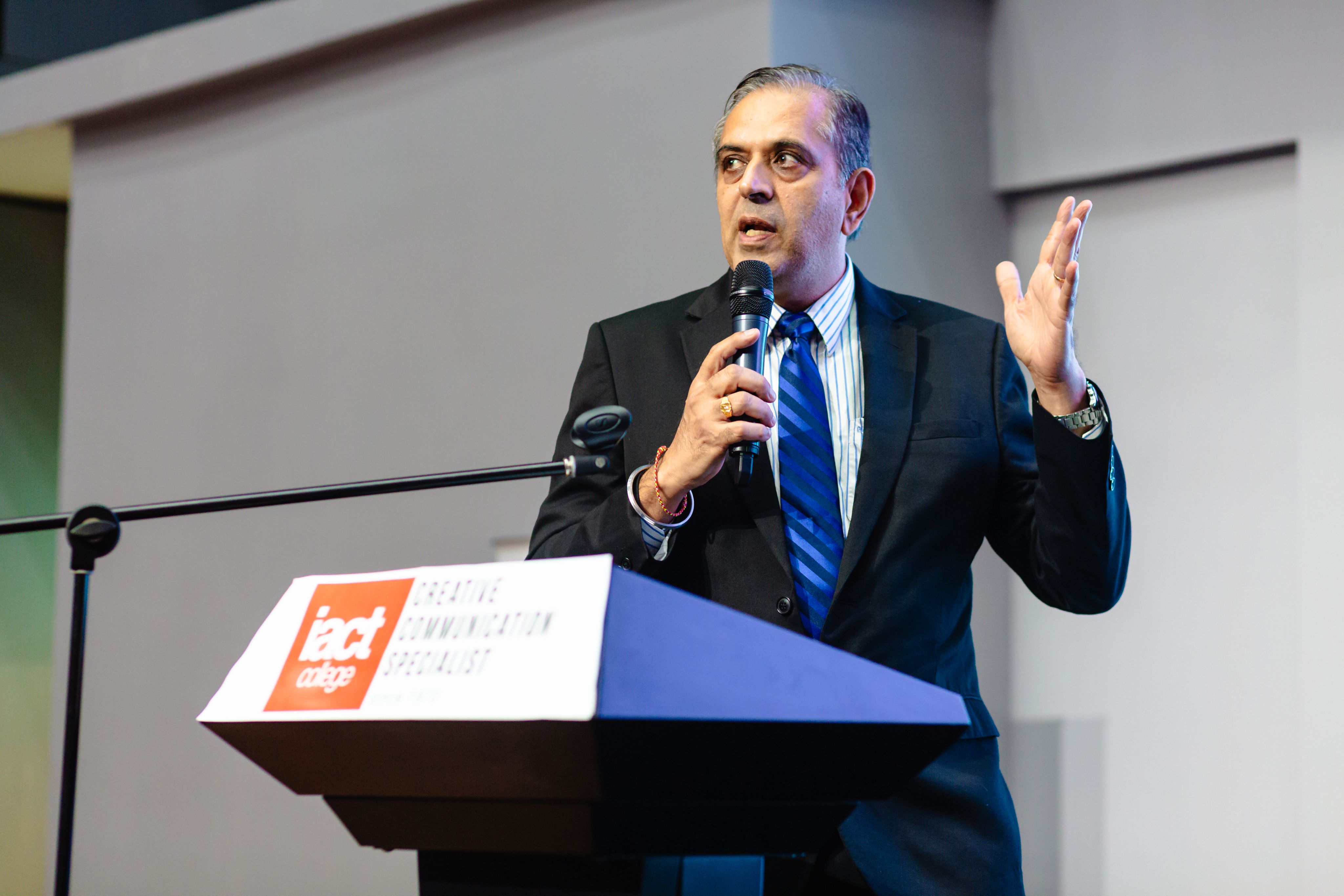ACEIO Advocate Discusses Ethical PR Challenges in Evolving Information Consumption
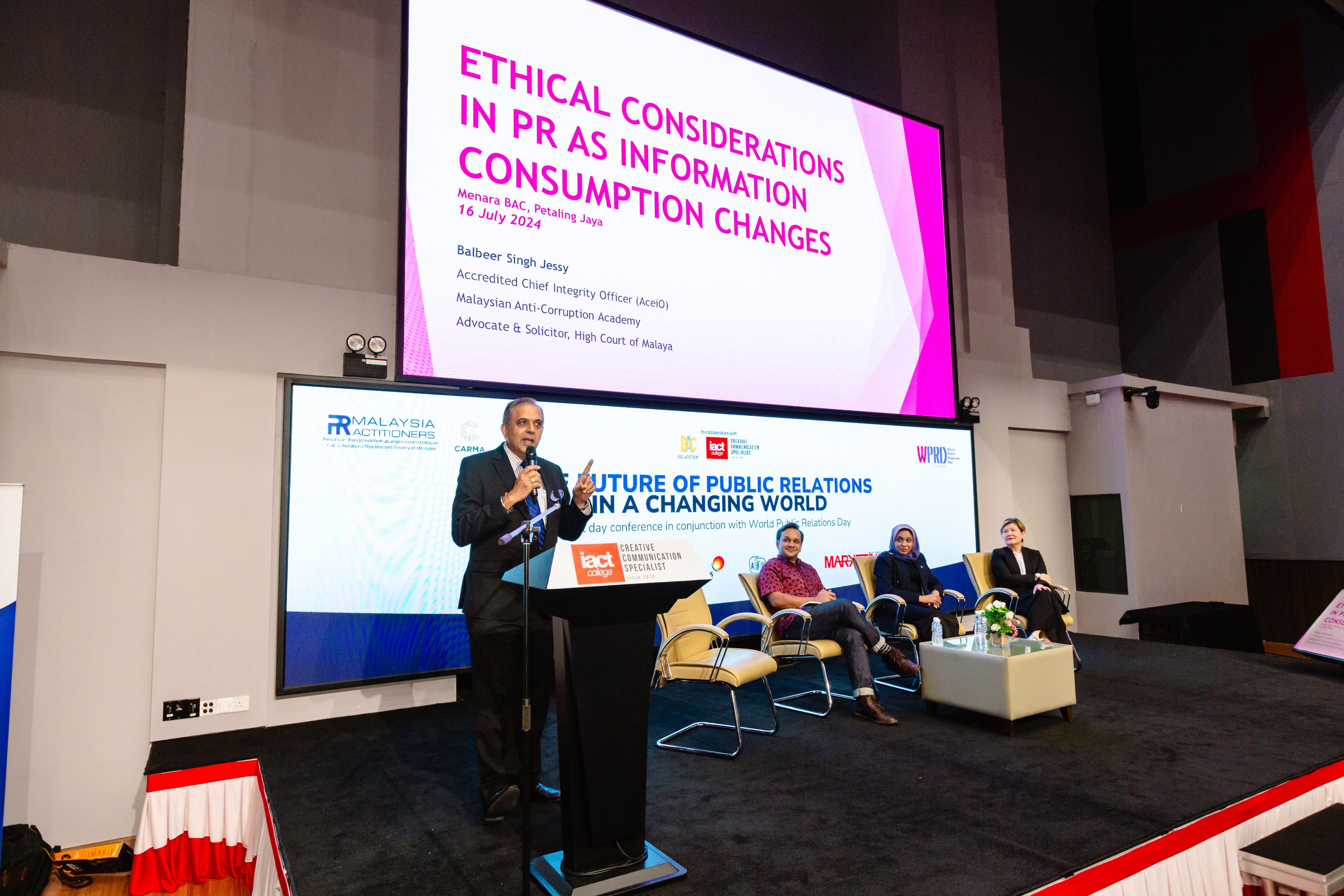
As the 2024 WPRD Conference continued at Menara BAC, Balbeer Singh, Accredited Chief Integrity Officer (ACEIO) from the Malaysian Anti-Corruption Academy and a seasoned Advocate and Solicitor, took the stage to offer his insights on the pressing issue of ethical considerations in public relations.
His presentation delved into the complexities of maintaining ethical standards amidst the rapidly changing landscape of information consumption. Balbeer provided a thoughtful analysis of how evolving media platforms and shifting public behaviors impact PR practices, emphasising the need for transparency, integrity, and responsibility in communication strategies. His session was a pivotal moment in the conference, offering valuable perspectives on navigating ethical challenges in today’s dynamic PR environment.
Balbeer's presentation also highlighted the five fundamental pillars of ethical considerations in public relations: non-maleficence, beneficence, confidentiality, fairness, and veracity.
Non-maleficence emphasises the importance of avoiding harm in all PR practices, ensuring that communications do not negatively impact individuals or communities. Beneficence focuses on promoting positive outcomes and contributing to the well-being of the public through responsible and beneficial communication strategies. Confidentiality underscores the necessity of safeguarding sensitive information and respecting the privacy of all stakeholders. Fairness involves ensuring equitable treatment and impartiality in all PR efforts, while veracity stresses the importance of truthfulness and accuracy in all communications. Together, these pillars provide a robust framework for navigating ethical challenges and maintaining integrity in the evolving landscape of public relations.
"AI will not replace, but it will augment the PR landscape."
Emphasising the above, Balbeer explained that while artificial intelligence is transforming various aspects of public relations, it is not a substitute for human expertise and judgment. Instead, AI enhances the PR field by streamlining processes, analysing large data sets, and providing actionable insights. He highlighted that AI tools can support PR professionals in crafting more targeted strategies, optimising communication efforts, and improving overall efficiency. However, he stressed that the human element—creativity, ethical considerations, and nuanced understanding—remains essential in leveraging AI effectively within the PR landscape.
To conclude his session, he stressed the importance of embracing AI as a complementary tool, ensuring that PR professionals continue to apply their unique skills and ethical standards to navigate the evolving communication environment.

